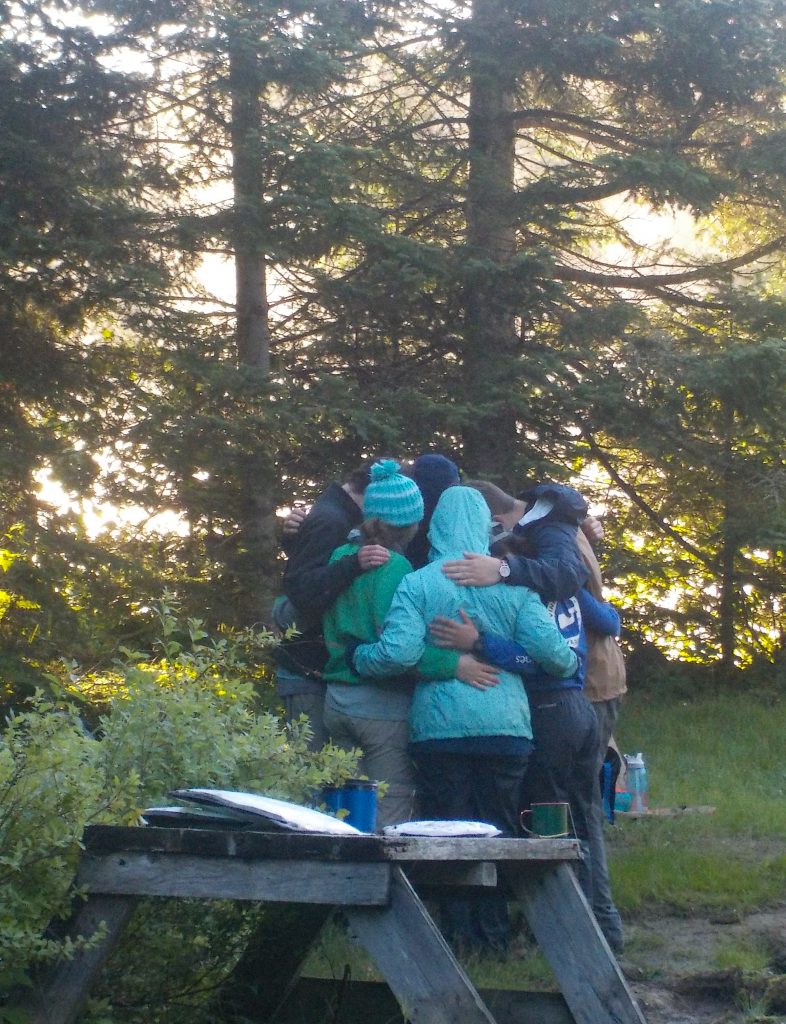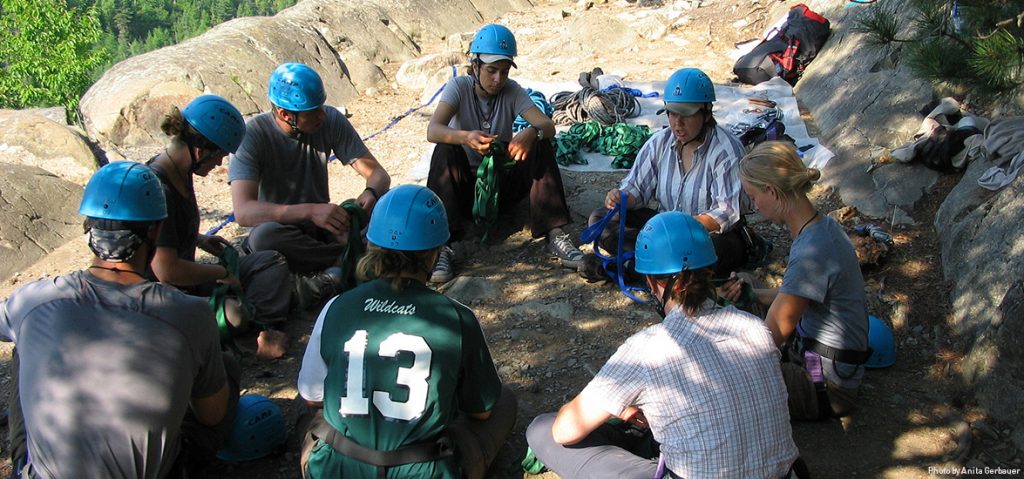An Outward Bound course allows you to consciously, proactively and intentionally grow your emotional intelligence in a supportive community. Translating this practice into your life back home helps you to continue to be your best self. The question is—how can you do that?
One of the most common rituals of a course is known as the “Evening Meeting.” This is a dedicated time in the evening where the entire crew gets together to discuss the day’s events, and they also go over the plan for the following day. The common steps of an evening meeting provide us with a framework that can be directly applied to our lives back home, and ultimately influence our emotional intelligence.

The common steps of an evening meeting provide us with a framework that can be directly applied to our lives back home, and ultimately influence our emotional intelligence. Photo by Luke O’Neill.
Here are three things you can do each day that will make a big difference.
1. Give Appreciations
Evening meetings usually begin with an intentional time to appreciate the group, oneself and the events of the day. I’ve come to realize that one of the most important lessons I’ve learned is to appreciate the moments when they happen and the people when they are present. These things don’t last forever. Learning to give thanks to the world and people we’re surrounded by means that we’re identifying feelings of gratitude and working to grow this feeling. By practicing telling our friends and family how much they mean to us, we can grow emotionally.

By practicing telling our friends and family how much they mean to us, we can grow emotionally.
2. Take Ownership
During many evening meetings, students and staff take an “ownership” from the day. Members of crew take turns identifying a moment when they weren’t their best selves and describe how they’ll try and do better the following day. The conscious practice of character development doesn’t often happen in traditional educational settings, and this is a major benefit to taking a course. This practice helps us to continuously work to grow our character and become better individuals.

Taking time each day to take ownership of our actions helps us to continuously grow our character and become better individuals. Photo by Jesse Swedlund.
3. Express Your Feelings and Requests
This part of evening meeting is perhaps the greatest example of how we grow our emotional intelligence at Outward Bound. Usually framed in a constructive way, feelings and requests allow students to identify negative and more challenging feelings of the day. Changes are requested so that it doesn’t happen again, and if to does, we feel better and more equipped to handle it. As an Instructor, this is the area where I often see the most growth in my students. Early in a course, the crew is hesitant to share during this part of the meeting. As time goes on, people open up and we witness incredible growth. A major benefit is watching people develop the ability to identify times when they were feeling upset or hurt, and request support from the group to prevent these negative feelings from overtaking them in the future.
When we return home, we can continue the practice of sharing our feelings and requests. In my own experience, this has been one of the most challenging things to transfer to my life back home. It’s rarely the cultural norm for us to directly tell people our feelings and request a change. Nonetheless, having these hard conversations tends to strengthen our relationships and help everyone grow. After watching my students grow and have a more successful course after engaging in this practice, I try my best to do this in my own community in order to foster healthier and more successful relationships.

Having conversations about your feelings and needs strengthens our relationships and helps everyone grow.
By making the time for things like these in our daily lives, we can help and support each other to become compassionate leaders with high emotional intelligence.
Note from the author: Special thanks to AJ Verkouw and Sophie Cho for their help with this article.
About the Author
Nick McEachern is an Outward Bound Instructor who splits his time between Central Oregon and Salt Lake City. His passion is looking at the edges of the map for adventurous ways to travel across landscapes and waterways with his friends. He enjoys drinking coffee in his sleeping bag and paddling into a headwind.




